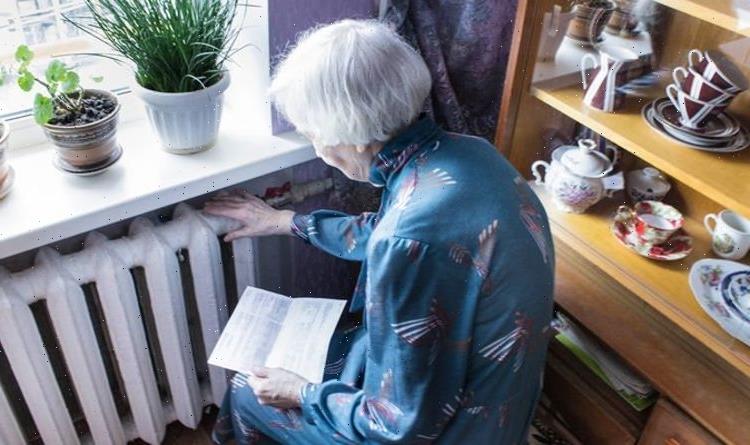Energy prices soar and EU poses 'joint gas purchase'
We use your sign-up to provide content in ways you’ve consented to and to improve our understanding of you. This may include adverts from us and 3rd parties based on our understanding. You can unsubscribe at any time. More info
The warning comes as gas reserves across Europe have reached a 10-year low and even lower temperatures look to set ramp up demand even further. At the start of the year, the northern hemisphere was hit by a series of unusually cold weather events that saw demand for gas skyrocket. Now with low backup supplies, further demand due to the return of winter could put even more pressure on an already tight supply.
Dr Adi Imsirovic, a senior research fellow at the Oxford Institute for Energy Studies, said: “If we have a really cold winter, we could be pretty tight.
“It’s just the perfect storm of a lot of demand and all these weather-related issues.”
And if that’s not bad enough, now there are signals of a weakening of the polar vortex which “helps send Arctic air on the move” in the UK and Europe, according to early weather patterning by US forecaster DTN.
The polar vortex is a circulation of wind that can travel over 150mph up to 30 miles above the Earth.
If the huge amount of air spinning around the Arctic moves south, it sends cold and snow to the lower latitudes.


Experts have warned that the weather caused by the polar vortex could see demand surge again and keep gas-market prices high until 2023.
This could be particularly damaging for the UK, whose storage facilities can only hold just enough gas to last four or five days, which is the equivalent of just one percent of Europe’s total storage available
To compare, Germany has 16 times as much storage available as the UK, and The Netherlands has nine times as much.
Now, the UK’s gas supply could run low within weeks if Europe-wide supply delays come about as a result of extreme weather conditions and the polar vortex.
The UK has been forced to purchase gas from wholesale gas as opposed to using its own supplies as its reserves are so low.
But this is bad news for both energy providers and consumers.
Wholesale gas prices surged by 250 percent since the start of 2021, which forced Ofgem, the industry regulator to bump up the minimum fee gas suppliers charge for tariffs (price cap) to £139.

Now, there are fears that households may have to fork out £400 in 2022 if wholesale prices do not stabilise.
20 energy companies have ceased trading in recent months, leaving over two million customers dependent on the safety net provided by Ofgem.
The declining security of our energy supplies had already been promted by poor weather conditions, even before the polar vortex appeared to be a threat.
Low levels of wind had meant that our wind turbines couldn’t generate as much power as usual.
But it’s not just the weather that has been ramping up the crisis.
Surging gas prices have also come about due to a tightening of pipeline gas being sent from Russia after President Vladimir Putin turned the tap on supplies.
Mr Putin ordered Gazprom, the state-owned Russian gas company, to reduce the supplies being transmitted to Europe as he awaits the approval of his newly built gas pipeline.
DON’T MISS
La Palma landslide ‘could kill millions of people’ [REVEAL]
Egypt breakthrough after ‘find of a lifetime’ uncovered [REPORT]
Zika outbreak: Emergency team formed as virus ‘spreading rapidly’ [INSIGHT]

Nord Stream 2 will transit gas from Russia into Germany, bypassing Poland and Ukraine.
But as it still needs certification from German regulators before coming into operation, Mr Putin has been accused of using the pipeline as a geopolitical weapon after reducing gas travelling from other pipelines into Europe.
Critics say this was a move to speed up the certification process and avoid EU law being applied to the system.

While the UK does not directly import gas directly from Russia, it does get some of Russia’s pipeline gas via the Netherlands and was still affected by Mr Putin’s gas squeeze, which saw gas prices soar as a result.
In October, Gazprom refused to book extra pipeline capacity from Ukraine for an auction watched by traders for indications of increased supply.
It ramped up wholesale gas prices in the UK and Europe by 18 percent.
Source: Read Full Article
